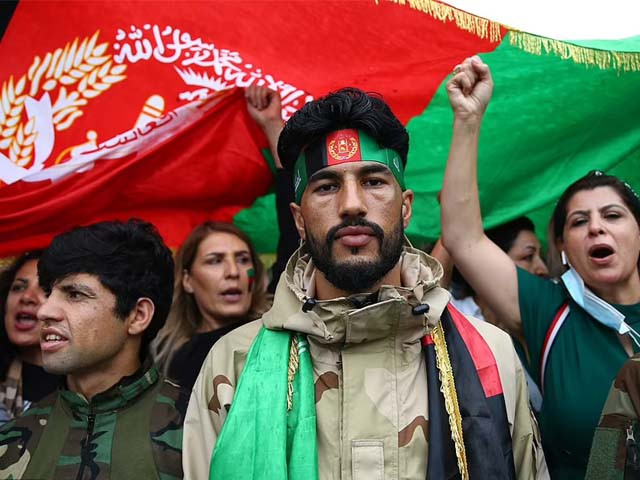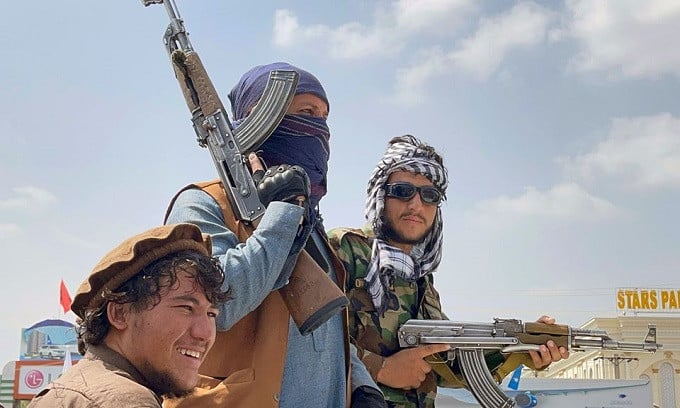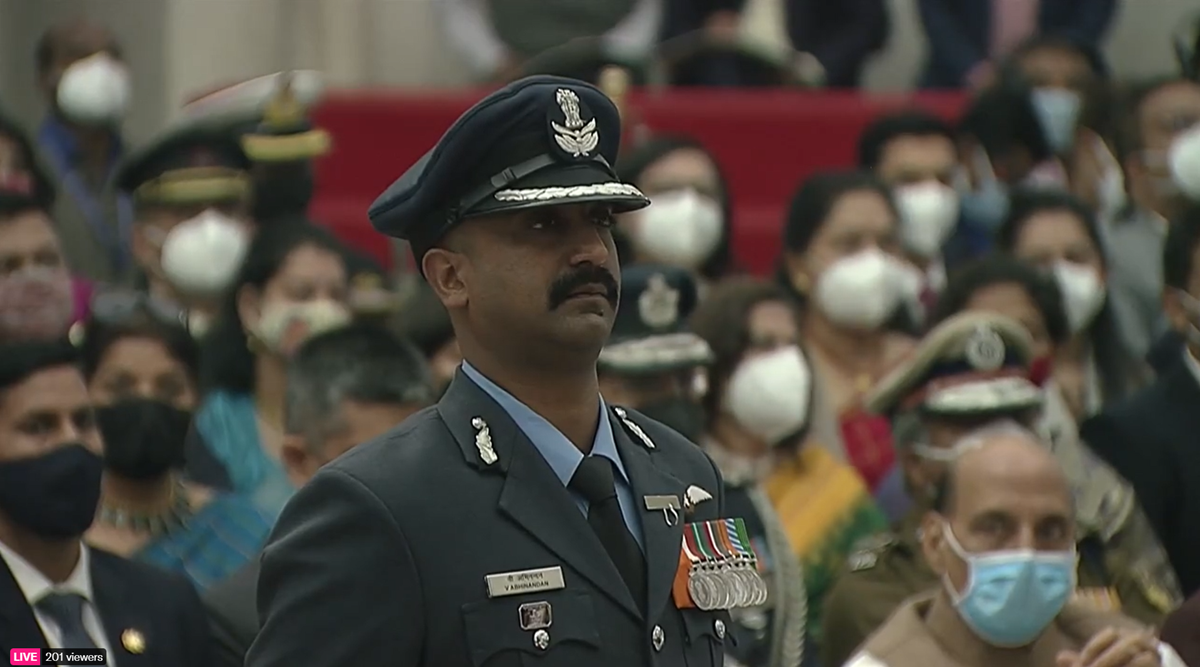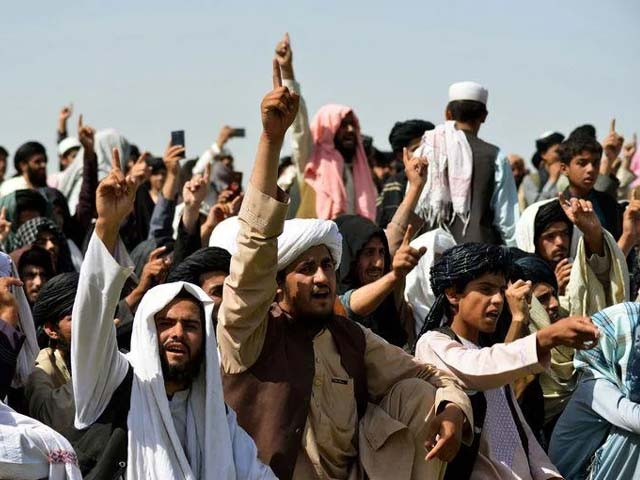
How can Pakistan help international aid efforts for Afghanistan?
Afghanistan is facing an imminent humanitarian crisis if the international community doesn’t urgently rally in support of multilateral aid efforts there. That’s failed to happen on any significant scale thus far mostly due to political reasons. The wealthy West feels uncomfortable extending the adequate amount of aid without the Taliban first implementing their promised political reforms otherwise they fear that this could be interpreted as “rewarding” them for not doing what everyone else expects. That would in turn disincentivise the group in the future, or so the fear goes. Pakistan is the country that would be most directly affected if Afghanistan’s humanitarian crisis comes to pass, hence why it must take the lead in stimulating international aid efforts there.
This can be accomplished most effectively by directly appealing to the EU as whole, its influential “Weimar Triangle” (France-Germany-Poland), and the bloc’s Turkish partner. The following points should be emphasised: averting the humanitarian catastrophe; preventing the EU-directed illegal immigration crisis that this could trigger; and focusing on sustainable green solutions that involve Afghanistan’s vulnerable female and minority populations. The EU officially incorporates humanitarian concepts into its foreign policy formulation (even if only selectively), hence why these angles should be most appealing to its decision makers.
The bloc is far from unified at the moment though, as the latest political crisis between Brussels and Warsaw proves, but its members might be interested in coming together in pursuit of their shared goal of averting Afghanistan’s humanitarian catastrophe. Even if they aren’t, its French, German, and Polish members have self-interested reasons in doing so unilaterally. Paris and Warsaw are cracking down on illegal immigration while Berlin’s predicted liberal-green coalition government might have ideological incentives for supporting humanitarian and green proposals, especially in a war-torn country like Afghanistan that’s attracted so much attention lately.
Turkey’s involvement is due to the role that it plays in thwarting illegal immigration to the bloc per prior agreements, including the recent one that it reached with Poland regarding the Eastern European illegal immigrant crisis emanating from Belarus. No sustainable solution on this is issue is possible without Turkey’s leading participation. Moreover, Ankara has an interest in expanding its influence in Afghanistan, especially through humanitarian means as evidenced by its employment of the Turkish Cooperation and Coordination Agency (TIKA according to its Turkish abbreviation) to this end in many Global South nations in the past.
The simple disbursement of aid isn’t enough since such efforts should be sustainable. This can be achieved by Pakistan proposing that those four countries take the lead in helping Afghan farmers replace their opium crops with foodstuffs, including through special access for these exports to their markets (perhaps via Pakistani ports). Another idea is to open up production centres in Afghanistan for winter clothes and other essential products. These can prioritise the hiring of females and minorities due to the EU countries’ concern about their future in de facto Taliban-led Afghanistan.
The green dimension is the most creative and can see Pakistan suggesting the expansion of its famous Ten Billion Tree Tsunami program to Afghanistan with international support. Combating climate change is one of the world’s greatest challenges, and the EU officially made this one of its priorities. It would therefore be extremely receptive to this proposal, especially if it involved prioritising the employment of females and minorities who could be paid certain sums for planting saplings across the country in the parts where this is ecologically possible. Such saplings can possibly be procured from nearby Pakistani tree farms at the first stage.
The EU understands the connection between climate change, humanitarian crises, and conflict. As inclement weather becomes more common, it’ll create serious challenges for many Global South people. These can predictably lead to humanitarian crises if they affect agriculture by contributing to drought like what’s happening in Afghanistan. Increasingly desperate people might then fight over very limited resources, which could also create space for terrorist groups like ISIS-K to expand, not to mention trigger large-scale illegal immigration waves. The EU therefore has an interest in stopping this in partnership with Pakistan.
From the Pakistani perspective, the potential expansion of its famous Ten Billion Tree Tsunami program to another country would prove that this concept was successful and can be emulated elsewhere. The South Asian state’s international reputation might gradually change as it begins to be seen by the influential EU as a global green leader instead of the so-called “rogue state” that some hostile forces try to mis-portray it as to this day. Islamabad could even go further by making the “sustainable green peace and development” concept an important pillar of its regional policy, which might even inspire neighbouring India to follow its lead with time.
After all, Prime Minister Imran Khan has preached regional peace and development since taking office, and he’s also made combating climate change an important part of his policy platform. It would therefore be a natural expansion of his vision if he began encouraging others in the region to take up their own Ten Trillion Tree Tsunami program, beginning with international support like what’s being proposed for Afghanistan. Success in Afghanistan might lead to other South Asian states emulating this policy irrespective of whether or not India ultimately does. Prime Minister Khan could also request the G20, SCO, BRICS, World Economic Forum (WEF), and other multilateral groups to help with this too in order to turn it into a truly global initiative.
No foreign country has a greater stake in Afghan stability than Pakistan does, which is why it must continue leading international aid efforts in that country. The lack of success thus far shouldn’t deter it from sharing new and creative proposals such as those contained in this piece. To recap, Pakistan should reach out to the EU, its “Weimar Triangle”, and Turkey to emphasise why and how they must urgently avert Afghanistan’s impending humanitarian crisis, prevent another uncontrollable illegal immigration wave, and promote sustainable green solutions there. Hopefully someone influential will be receptive to this and finally help get the ball rolling.




COMMENTS (2)
Once and everytime when all options of west exhausted then they force own Pakistan.Taliban have won and defeated everything on ground so west should fulfil own promises made at Doha.
Comments are moderated and generally will be posted if they are on-topic and not abusive.
For more information, please see our Comments FAQ